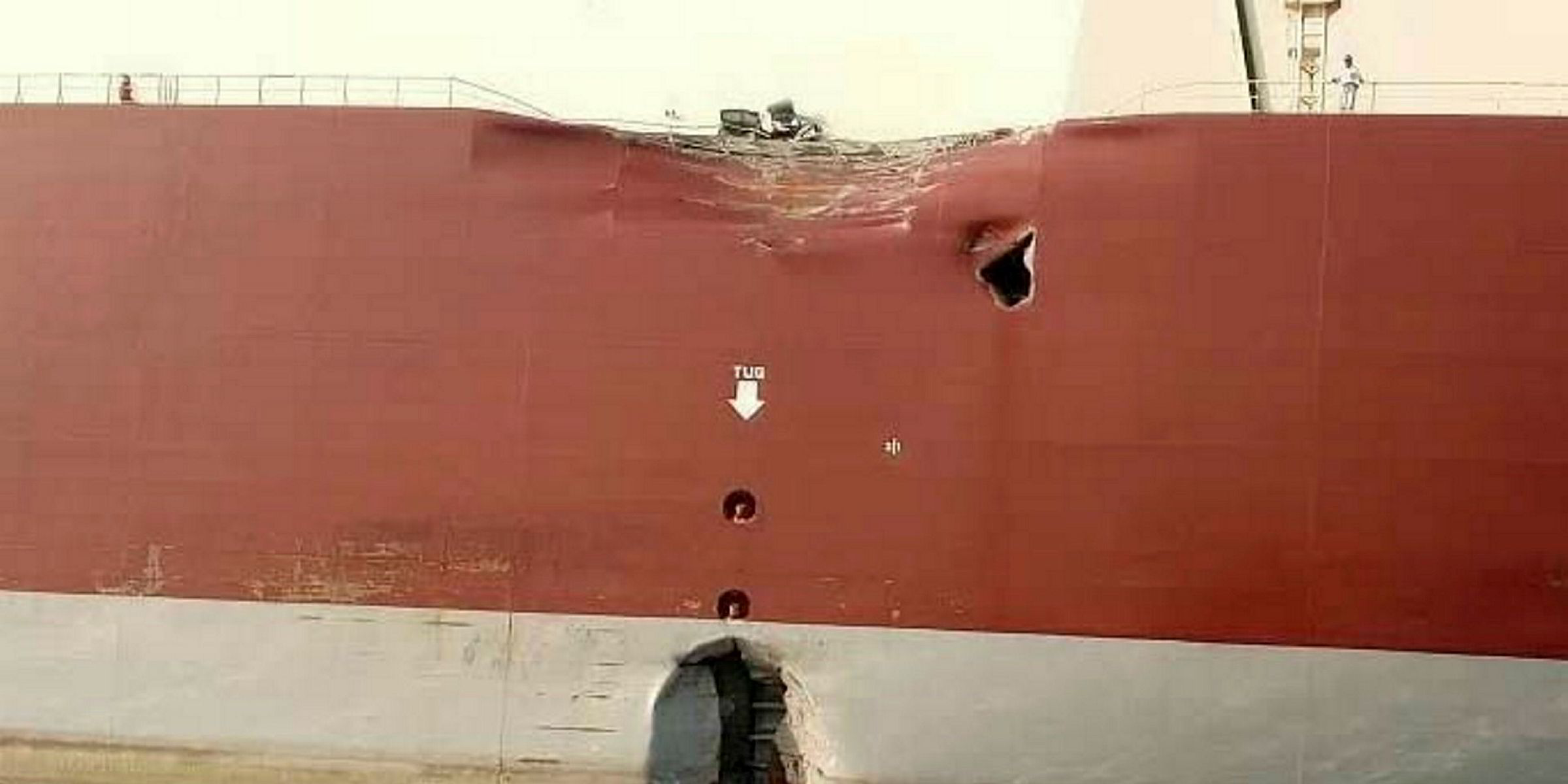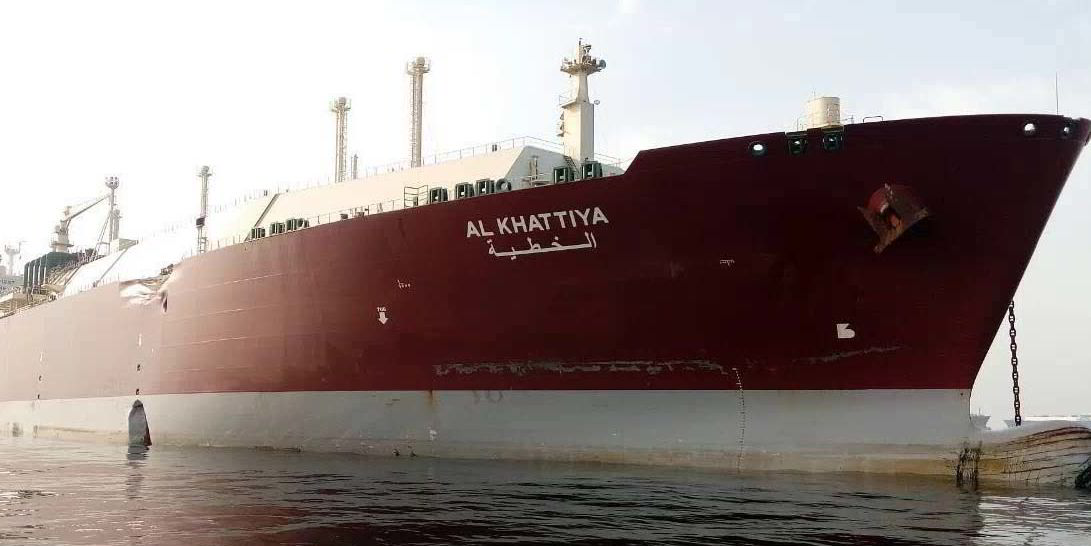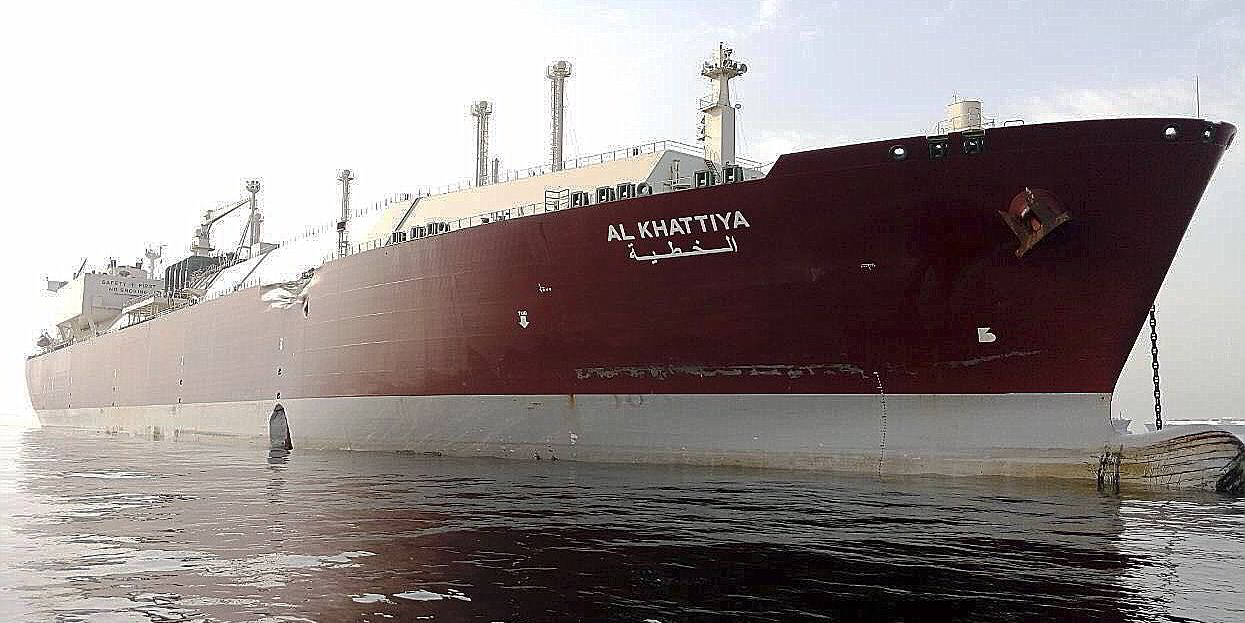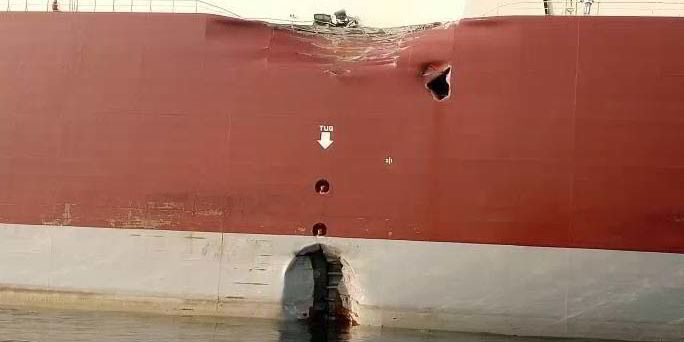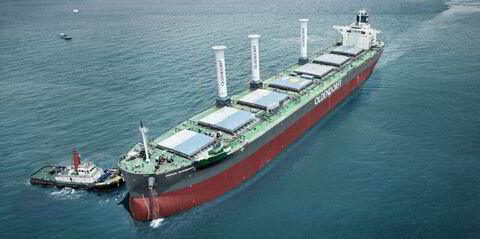Indian owner Great Eastern has failed in its bid to have damages assessed in Fujairah after a collision there last year involving one of its suezmaxes.
The 150,284-dwt Jag Laadki (built 2000) smashed into Nakilat's 210,100-cbm LNG carrier Al Khattiya (built 2009) at high speed on 23 February, 2017.
The gas ship was at anchor taking on supplies and suffered substantial damages.
It has been repaired and is back in action, but Nakilat is claiming $30m in compensation.
Great Eastern has been trying to have damages assessed in Fujairah, where tonnage limitation per vessel is lower than in the UK.
UK admiralty court judge Sir Simon Bryan said in a ruling: "The defendants now accept that they are 100% to blame for the collision (as would appear to have been inevitable at all times given the facts identified above).
"In consequence this considerably limits the issues that can arise in relation to this dispute; specifically the only matters that can arise in relation to the claim are matters of quantum, a point of significance in the context of the application for a stay on forum non conveniens grounds."
Nakilat claimed jurisdiction in the UK by serving a claim against another Great Eastern ship, the 49,000-dwt tanker Jag Pooja (built 2005), at Milford Haven in Wales last March.
"The right to found jurisdiction in this manner by serving on a vessel is a well-known and important feature of maritime law, which is applied around the world," Bryan said.
Lower limits in UAE
The UK limit is $53.5m for claims against the ship. Fujairah's limit is $14.7m as a party to the unamended 1976 Limitation Convention.
The UAE also applies a domestic limitation regime, which would be $5.4m.
"It is accordingly self-evident that the tonnage limitation regime in the UK is more favourable to the claimant [Nakilat], whereas that in the UAE is more favourable to the defendants. "
Great Eastern claims Fujairah is the natural place for the legal action, given it was the location of the accident.
"Ultimately, however, on the evidence before me, the defendants have not established that UAE law is materially different from English law in any way that is likely to be material to the issues arising in the claim. Nor have they established that a Fujairan judge would be clearly and distinctly better placed to determine and apply UAE law," the judge ruled.
"At present, and subject to any successful appeal, there are no limitation proceedings in Fujairah.
"There are, however, extant proceedings in England, namely this action. I do not consider the (speculative) possibility that at some uncertain point in the future (many months away), the defendants might be successful in reviving the Fujairan limitation proceedings as a factor of any weight."
England the "appropriate forum"
He continued: "Indeed I would, and do, go further. In this regard I consider that the factors relied upon by the defendants, specifically the location of the tort, UAE law and any potential multiplicity of proceedings are, in the particular circumstances of this case, far outweighed by the factors pointing to England as the appropriate forum for the determination of the quantum issues that remain, in relation to which I consider (and find) that England is the appropriate forum for the trial."
TradeWinds reported the LNGC was holed below the waterline on its starboard side.
A further puncture and damage to the hull was also visible above.
“Two of Al Khattiya’s ballast tanks were breached with a loss of some ballast water,” manager Stasco said at the time.
Industry sources told TradeWinds that the LNG carrier sustained water ingress behind the primary barrier of its membrane-type cargo containment system.
No injuries were reported.
